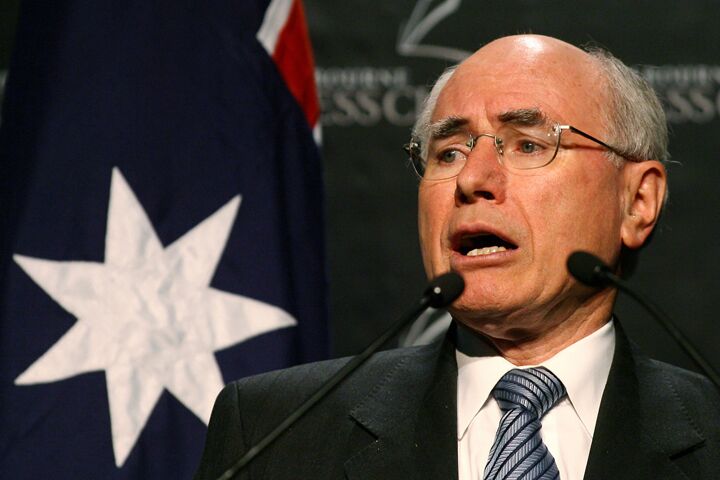
“Humiliating Defeat” for John Howard
On Saturday, President Bush’s staunchest ally in the war against radical Islam ended his long political career. Described as a “humiliating defeat” by several news outlets, Australia’s Prime Minister John Howard was voted out—losing not only at the hands of the Australian electorate but also becoming only the second prime minister in Australian electoral history to lose his own local constituency in the process.
The New York Times gleefully noted that “Mr. Howard’s defeat, after 11 years in power, follows that of José María Aznar of Spain, who also backed the United States-led invasion of Iraq, and political setbacks for Tony Blair, who stepped down as Britain’s prime minister in June.”
Typically, the Australian press and mainstream media have pointed to social issues to argue for governmental change. They urge workers to seek more money from the coffers of Australia’s booming commodities markets. They appeal to the liberals within Aussie society to feel good about voting to help the planet cool down. Add to those causes, now, the left’s cry to break Australia away from the apron strings that have tied it to that terrible President Bush.
Not that this election result was the media’s doing. Clearly, campaign mistakes made by John Howard and some of his supporters certainly helped his opponent, Kevin Rudd, to forge ahead in public opinion. But Rudd is untested in the policy area that ought to have headed the bill in this election: international relations.
Massive changes are reordering the balance of power in the Pacific. Two powers presently eye each other as prospective replacements for ebbing U.S. power there: Japan, possessing a blue water navy second only to the U.S., and China, possessor of most of the Pacific’s major sea ports. Both nations carry a huge amount of U.S. debt at present. Ever watchful of the foreign policies of these two nations is India, experiencing a rapid build-up of its own naval force, and Russia, revitalizing its rusting Soviet-era hulks and adding new naval hardware to its nuclear fleet.
Australia is far too small in population and total military assets to mount any credible defense against foreign incursion from a major power that might seek to obtain access to its key natural resources other than by trade. Without the U.S. to intervene and come to its aid, Australia would be in dire straits indeed in such a situation—witness World War ii.
But the old soldiers who remember past conflicts that were fought over access to raw materials have almost all now been called to the grave. Australians may still put on a great show of remembering their fallen every Anzac Day, but few remain who remember the circumstances that led to the last great global conflict and its terrifying results.
Australia is currently riding high on the massive boom in China and greater Asia. But Australians may well be living in a fool’s paradise. At this crucial time of global political disorder, Aussies can ill afford to turn inward and sacrifice national vigilance for the hedonistic way of life their full-employment economy tempts them to at this crucial time in history.
The new Australian Prime Minister Kevin Rudd’s first year in office will be crucial. Watch, in particular, for any change in the Australia-U.S. alliance that could tip the balance of power in the Pacific against this—up to now—most “Lucky Country.”
Howard’s “humiliating defeat” may be an early warning signal of which direction the political winds might blow around this time next year on the other side of the Pacific. And as in Australia, major U.S. media outlets will be pressing hard for a shift toward a more liberal administration.
